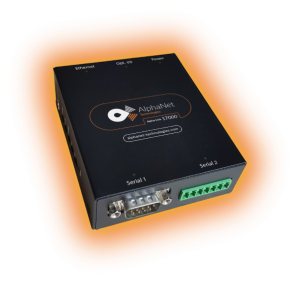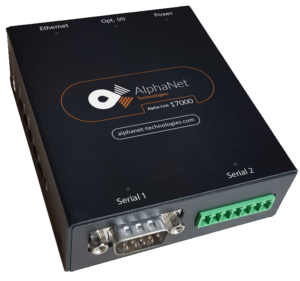In the realm of industrial control, efficiency and reliability are paramount. The AlphaNet AT17000-MMt Gateway Converter Series steps into the limelight as a powerful solution designed to simplify industrial control processes. In this article, we’ll delve into the significance of industrial control, the pivotal role of the AT17000-MMt Gateway Converter Series, and how it streamlines industrial operations.
The Importance of Industrial Control
Orchestrating Precision and Efficiency
Industrial control is the orchestration of various processes and systems within an industrial environment. It’s the means by which precision, efficiency, and productivity are achieved. Here’s why industrial control is crucial:
- Process Optimization: Industrial control systems fine-tune processes to ensure optimal performance, reducing waste and enhancing productivity.
- Quality Assurance: Precise control ensures that products meet quality standards consistently, improving customer satisfaction and brand reputation.
- Safety: Industrial control systems play a critical role in maintaining safety by monitoring and responding to potential hazards.
- Cost Reduction: Efficient control reduces operational costs, such as energy consumption and maintenance, leading to long-term savings.
The Role of AlphaNet AT17000-MMt Gateway Converter Series
Simplifying Industrial Control
The AlphaNet AT17000-MMt Gateway Converter Series is engineered to simplify industrial control processes. Serving as a bridge between Modbus RTU/ASCII devices and Modbus TCP networks, it empowers seamless communication and control. Here’s how the AT17000-MMt Gateway Converter Series accomplishes this:
1. Protocol Translation
The AT17000-MMt Gateway Converter Series excels in protocol translation. It converts Modbus RTU/ASCII commands and data into the Modbus TCP format and vice versa, ensuring that different devices can communicate effectively within the same network.
2. Real-Time Data Exchange
Industrial control relies on real-time data for decision-making. The AT17000-MMt Gateway Converter Series ensures that data flows in real time, providing critical information for monitoring and adjusting processes promptly.
3. Remote Control and Monitoring
With the AT17000-MMt Gateway Converter Series, remote control and monitoring become accessible. Operators can troubleshoot, make adjustments, and optimize industrial processes remotely, reducing the need for physical presence and minimizing downtime.
4. Temperature Resilience
Industrial environments often subject equipment to extreme temperatures. The AT17000-MMt Gateway Converter Series is built to withstand such conditions, offering a temperature range from -40°C to 80°C, ensuring consistent performance in challenging settings.
5. Power Over Ethernet (PoE) Support
PoE support simplifies installation by delivering both power and data over a single Ethernet cable. This reduces wiring complexity and facilitates flexible device placement, enhancing control system design.
6. Multiple Port Configurations
The AT17000-MMt Gateway Converter Series offers multiple port configurations, including 1-port and 2-port models. This flexibility allows businesses to tailor their solutions to specific industrial control requirements.
7. Expert Technical Support
AlphaNet Technologies provides expert technical support for the AT17000-MMt Gateway Converter Series. In case of challenges during installation or operation, professional assistance is readily available to ensure seamless performance.
Key Benefits of Simplified Industrial Control
Unlocking Efficiency and Precision
Simplified industrial control with the AT17000-MMt Gateway Converter Series offers several key benefits:
1. Streamlined Operations
The AT17000-MMt Gateway Converter Series streamlines industrial processes by enabling seamless communication and real-time data exchange, reducing operational complexities.
2. Enhanced Precision
Precise control and monitoring lead to improved product quality, ensuring that products meet or exceed quality standards consistently.
3. Remote Accessibility
Remote control and monitoring capabilities empower operators to manage and optimize processes from anywhere, reducing the need for on-site presence and improving response times.
4. Cost-Efficiency
Efficient control systems reduce operational costs, such as energy consumption and maintenance expenses, contributing to long-term cost savings.
5. Safety
Industrial control systems monitor and respond to potential hazards, enhancing safety in the workplace and minimizing risks to personnel and equipment.


